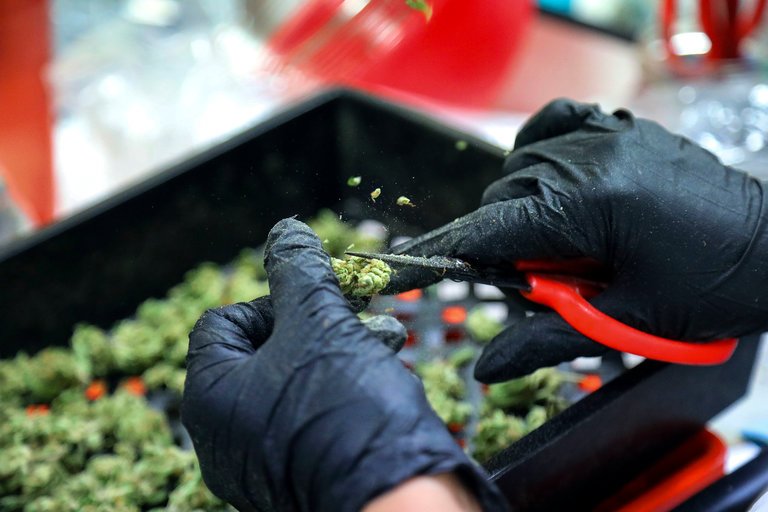It was a telling setting for a decision on whether post-traumatic stress disorder patients could use medical marijuana.
Against the backdrop of the nation’s largest Veterans Day parade, Democratic Gov. Andrew Cuomo announced this month he’d sign legislation making New York the latest in a fast-rising tide of states to OK therapeutic marijuana as a PTSD treatment, though it’s illegal under federal law and doesn’t boast extensive, conclusive medical research.
The increase has come amid increasingly visible advocacy from veterans’ groups.
Retired Marine Staff Sgt. Mark DiPasquale says the drug freed him from the 17 opioids, anti-anxiety pills and other medications that were prescribed to him for migraines, post-traumatic stress and other injuries from service that included a hard helicopter landing in Iraq in 2005.
“I just felt like a zombie, and I wanted to hurt somebody,” says DiPasquale, a co-founder of the Rochester-based Veterans Cannabis Collective Foundation. It aims to educate veterans about the drug he pointedly calls by the scientific name cannabis.
DiPasquale pushed to extend New York’s nearly 2-year-old medical marijuana program to include post-traumatic stress. He’d qualified because of other conditions but felt the drug ease his anxiety, sleeplessness and other PTSD symptoms and spur him to focus on wellness.
“Do I still have PTSD? Absolutely,” says DiPasquale, 42. But “I’m back to my old self. I love people again.”
In a sign of how much the issue has taken hold among veterans, the 2.2-million-member American Legion began pressing the federal government this summer to let Department of Veterans Affairs doctors recommend medical marijuana where it’s legal. The Legion started advocating last year for easing federal constraints on medical marijuana research, a departure into drug policy for the nearly century-old organization.
“People ask, ‘Aren’t you the law-and-order group?’ Why, yes, we are,” Executive Director Verna Jones said at a Legion-arranged news conference early this month at the U.S. Capitol. But “when veterans come to us and say a particular treatment is working for them, we owe it to them to listen and to do scientific research required.”
credit:timesunion.com













